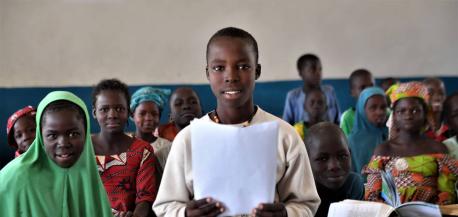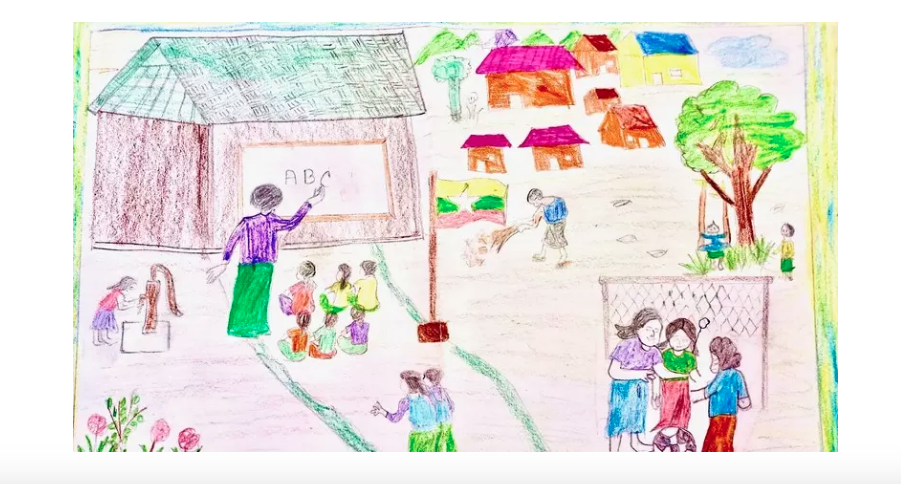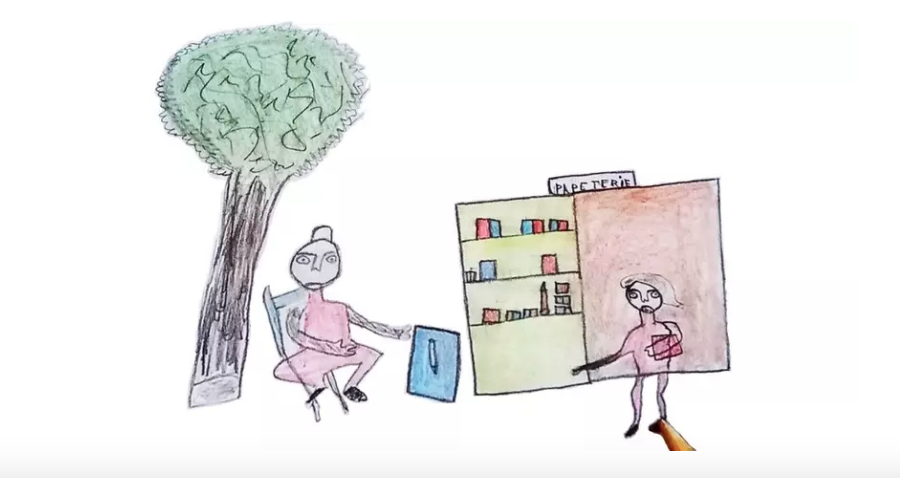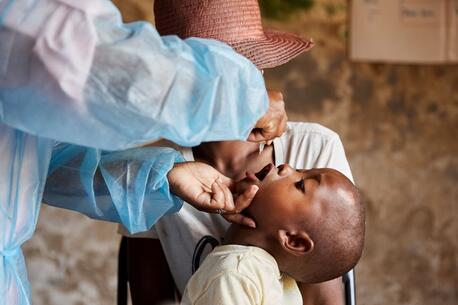
Postcards From the Edge
Children worldwide share stories of perseverance and hope as they call on leaders to make good on the promise of education for all.
Children worldwide are being denied their basic human right to an education. Conflict, climate change, displacement and other crises are pushing them to the edge.
To highlight the amazing stories of perseverance and hope emerging on the front lines, Education Cannot Wait (ECW) — the UN’s global fund for education in emergencies that is hosted by UNICEF — asked crisis-affected girls and boys worldwide what education means to them.
These ‘postcards from the edge’ offer us a living testament to the remarkable power of education to transform lives. There are stories of burnt villages and violent attacks, stories of droughts and hunger, and stories of courage and hope in the face of adversity.
Since sending out the call to its partners, ECW has received dozens of handwritten postcards, letters, drawings and video testimonials from girls and boys in more than 20 countries worldwide, many of whom benefit from ECW’s strategic partnerships with UNICEF.
Education Cannot Wait is the UN's global fund for education in emergencies
With the situation in Afghanistan ever-changing, it is not clear what the future holds for Zehab,* who lives in Uruzgan Province.
“I want to get education and become a well-known doctor. But I am wondering that I might not achieve my dreams, as girls are not allowed to attend schools in Afghanistan,” she says in her postcard.
With support from an ECW-funded Multi-Year Resilience Program delivered by UNICEF, Zehab has been able to continue her education at a non-formal learning space. “I call on the world leaders to help us and give us the opportunity to learn and lead our future,” she says.
In Cameroon, 14-year-old Gilbert*, a Nigerian refugee, has seen many children his age who have been forced to drop out of school because of insecurity, gender-based violence and other terrible assaults on their human rights.
“It is important to invest in education because we are happy in school. We want to learn, to become educated people, to help our community to develop,” says Gilbert.
With support from ECW-funded programs delivered by UNICEF and other strategic partners in Cameroon, Nigeria and beyond, refugee children like Gilbert are finding safety and opportunity in quality learning environments.

On the other side of the globe, 11-year-old Zawad* is a Rohingya refugee living in Bangladesh. He has struggled to survive here in the largest refugee camp in the world.
With the support of ECW and UNICEF, Zawad dreams of becoming a teacher one day. As he puts it so eloquently: “Educated people have the knowledge to define right and wrong, which will help them lead a better life.”
There are many girls like me who are migrants and leave their country to have a better life in a new country. — Sofia*, 10
South America is currently experiencing one of the world’s largest displacement events. Millions have fled Venezuela in search of a better life.
Sofia* is just 10 years old. After fleeing her home country, she’s back in school and building a new life in Peru.
“There are many girls like me who are migrants and leave their country to have a better life in a new country,” she says. “This is why I am calling on world leaders to make education for girls and boys a priority.”
ECW’s Multi-Year Resilience Program in Peru is being delivered by UNICEF in collaboration with the Ministry of Education; it will reach over 40,000 children by 2024.

In Haiti, where gang violence has crippled the national economy and struck fear in the hearts of an entire nation, 14-year-old Darline* writes with the passion of Nelson Mandela.
“The education system is in tatters. It is a political, economic and social crisis. The school is not functioning due to inflation, scarcity of fuel, insecurity and gang violence in the country. Today, we go to school but with fear in our stomachs. We avoid wearing school uniforms.”
Like many children in her situation, Darline wants to become a doctor. With support by ECW programs delivered by UNICEF, she is on her way to realizing her dreams.
“I want to be able to help the young people of the next generation no longer take up arms, no longer let the country sink into unsanitary conditions … I demand change!” she says.
ECW and strategic partners like UNICEF provide learning opportunities for children caught in crises
ECW and its strategic partners, including UNICEF, across the globe will continue to highlight the voices of the 222 million children caught in emergencies and protracted crises through the Postcards from the Edge Campaign as we look forward to the Fund’s High-Level Financing Conference in Geneva this February.
This ground-breaking conference provides leaders with the chance to stand up for children like Zehab, Gilbert, Zawad, Sofia and Darline to help them realize their dreams and enjoy their essential human right to go to school, to learn, to grow, to thrive.
“UNICEF urges public and private sector donors, foundations and high-net-worth individuals to rally behind ECW’s High-Level Financing Conference, with substantive, sustainable and flexible funding so more crisis-affected girls and boys can access quality education,” said UNICEF Executive Director Catherine M. Russell.
Every child has the right to an education. Donate today.
*For protection and safeguarding purposes, all names have been changed.
HOW TO HELP
There are many ways to make a difference
War, famine, poverty, natural disasters — threats to the world's children keep coming. But UNICEF won't stop working to keep children healthy and safe.
UNICEF works in over 190 countries and territories — more places than any other children's organization. UNICEF has the world's largest humanitarian warehouse and, when disaster strikes, can get supplies almost anywhere within 72 hours. Constantly innovating, always advocating for a better world for children, UNICEF works to ensure that every child can grow up healthy, educated, protected and respected.
Would you like to help give all children the opportunity to reach their full potential? There are many ways to get involved.





